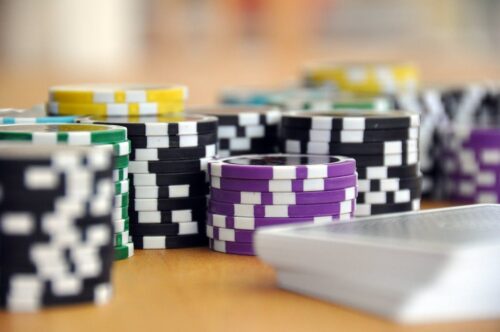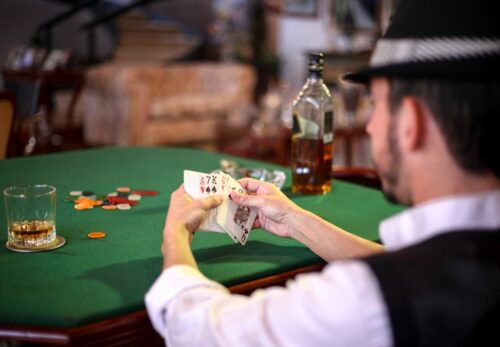THE KEY SKILLS YOU NEED TO PLAY POKER
Poker is a game that is on the rise in the current era. The number of people around the world who are choosing to play online poker real money games in particular is skyrocketing.
That is because playing for real cash is straightforward and lets players have fun the comfort and convenience of gambling from home. It is a game that is thrilling and challenging, but not everyone can make it to land-based casinos to play on a regular basis.
Gambling online has made it more accessible then, and you can jugar con dinero real aquÃ, but poker is still a complex game. There are skills you need to hone to play it well, so read on to find out what they are.
Self-discipline and patience
A good poker player will have to learn iron levels of self-discipline. So much of this game is about learning when not to play a hand.
Discipline allows a player to fold when they know their hand isn’t strong enough, which will help to minimize losses. That discipline must also extend to controlling emotions, so that actions during the game are driven by rational thought, because anything else will be destructive to solid poker-play.
Patience to wait for a really good hand is also a key skill. The sort of reckless bets featured in Hollywood gambling scenes are pretty rare in the real world.
Money management
Poker is a game that typically takes place over several hours, but your participation will last for as long as your bankroll does. One very common mistake that inexperienced players often make is to burn through their cash quickly by engaging in wild betting.
In a way you should think about playing poker as like running a business and you need to make sure your cash flow is healthy. Managing your money over the course of the game will ensure that you are still in it when a good hand comes along and when the pot is really worth playing for.
Strategic thinking
An ability to think strategically in poker is essential to keeping your opponents off balance and preventing predictability from seeping into your play. A good poker player is always thinking about what cards their opponents might have and what moves they are most likely to make next.
A grasp of strategy will also help you understand when to try to bluff with a weak hand versus when to fold. Without it you will simply be lost when up against really experienced poker players.
Psychology
Poker is very much a psychological game at heart. Although the aim is to try to get the strongest hand you can, it is entirely possible to win a round of poker with a bad hand.
Moves like the famous ’˜bluff’ are all about psyching out opponents by making them believe a hand is stronger than it really is. The three essential poker questions are:
What hand does your opponent hold?
What hand do they think you have?
What do they think you believe they have?
If you can answer those questions you have the potential to use psychology to manipulate the reactions of your opponent to your advantage. It is one of the skills you must master or it will be used against you.
Math
A good poker player does not have to be a math genius, but a solid grasp of the subject will certainly be a big advantage. Being able to think about the hands held by opponents in the game and calculate what cards they are most likely to have will make your own decision making easier and more accurate.
A poker player also needs to grasp the concept of ’˜outs’ – which means the cards that can potentially make a hand better. Being able to do that is also a matter of basic math.
Emotional control
Earlier we mentioned that poker moves must always be calculated and rational, not fuelled by excitement, panic or other emotions. Well emotional control is also vital for not giving away too much information to the other players.
Due to the psychological nature of poker, players will try to unsettle their opponents so that their emotions show and indicate what sort of hand they have. You have to be able to control your emotions and maintain an ice-cool front to play well.
It is not easy, especially for new players when feeling nervous and intimidated is natural. Some people take lessons from professional coaches just to learn the crucial skill of emotional control.
It is something that most players become better at with experience, but get coaching if you think you will need it.
These are the skills that can make the difference between success and failure when playing poker.



